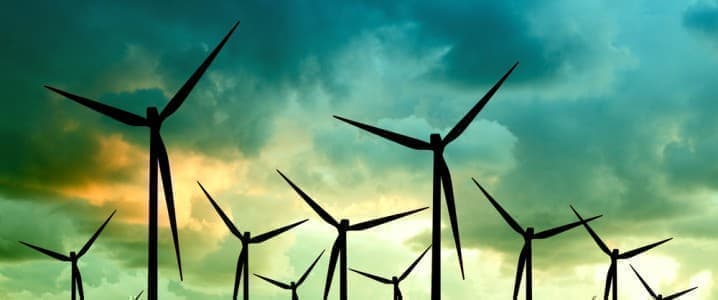Efforts in Djibouti to increase energy capacity and accelerate the shift from hydrocarbons to renewables moved forwards in September 2023 with the inauguration of the Ghoubet wind farm.
Boosting capacity
Located near Ghoubet Lake in the Arta Region along the southern coast of the Gulf of Tadjoura, the Ghoubet wind farm will provide 60 MW of clean energy, boosting overall capacity by 50% and averting 252,500 tonnes of CO2 emissions annually, equivalent to the pollution generated by over 55,000 buses.
As the first significant international investment in the renewable energy segment in Djibouti, the $122m project represents the country’s first independent power producer (IPP) initiative and sets a template for further private investment.
The wind farm spans 387 ha, equivalent to over 700 football pitches. The site’s 17 Siemens turbines each have a capacity of 3.4 MW, served by a 220-MVA substation and connected by a 5-km overhead transmission line.
Commissioned by the government in 2019 and inaugurated by President Ismaïl Omar Guelleh in September 2023, it marks Djibouti’s first IPP project, following legislative reforms implemented in 2015 to regulate IPPs.
The wind farm has been financed through a public-private partnership (PPP) between the government and Red Sea Power (RSP), a consortium comprising several investors, including the Africa Finance Corporation; FMO, the Dutch entrepreneurial development bank; and Great Horn Investment Holding, which is owned by the Djibouti Ports and Free Zones Authority and the Djibouti Sovereign Fund.
The consortium is already planning an additional 45 MW of renewable energy capacity, with 45 MW of storage and a power line to the Tadjoura and Obock regions in the north.
The government has recognised the critical function of PPPs in diversifying and enhancing the competitiveness of the national economy.
“PPPs are ideal because they facilitate efficient capital allocation without adding to the country’s public debt, and private investors provide the requisite financing and appropriate technologies,” Yonis Ali Guedi, minister of energy and natural resources, told OBG.
The electricity generated by the wind farm will be sold under a long-term power purchase agreement to state-owned utility Electricité de Djibouti.
Green solutions
Along with the wind farm, a new RSP-funded solar-powered desalination plant in Djibouti that will provide nearby villages with 7000 litres of drinking water per hour was inaugurated the same day.
Larger planned desalination plants are set to rely on the Ghoubet wind farm for power generation, thereby reducing the energy cost of operation. The country’s first desalination plant began operating in March 2021 in Doraleh, with an initial capacity of 22,500 cu metres per day. This is expected to double in the near term.
These and other projects in the pipeline are part of a broader move to shift the energy mix away from hydrocarbons and towards renewables, in line with objectives laid out in Djibouti Vision 2035, the long-term development plan aimed at transitioning the country into a middle-income economy.
To date, Djibouti has relied on imported fossil fuels to generate power, with most of its electricity coming from neighbouring Ethiopia through a 283-km interconnection link. Djibouti Vision 2035 targets the generation of 100% of energy from renewables and achieving energy security by the close of the plan.
Harnessing energy from renewable resources such as wind, solar and geothermal is set to support efforts to meet these aims and, with significant prospects in these fields, the country is moving ahead on several projects.
“Our aim is to be the first country in Africa to be 100% powered by green energy by 2035. Investment in renewable energy infrastructure is key to enabling our ambitions. In this regard, the inauguration of the Ghoubet wind farm is a major milestone. Reliable and cost-effective energy solutions are vital to Djibouti’s infrastructure growth,” Aboubaker Omar Hadi, chairman of Great Horn Investment Holding, told OBG. “With the development of industrial free zones, the country faces a projected demand of 3700 MW in the next decade. Tapping into renewable energy sources like solar, geothermal, wind and tidal is crucial to bridge this gap.”
Boosting energy capacity is a central pillar of Djibouti’s efforts to galvanise infrastructure growth and meet rising demand from heightened industrial and port activity. As part of Djibouti Vision 2035, the country is moving to capitalise on its geostrategic location at the crossroads of Africa, the Middle East and the Indian Ocean by establishing itself as a major trans-shipment nexus. It plans to develop a number of industrial free zones that are expected to increase demand for power.
More Top Reads From Oilprice.com:
- Europe’s Natural Gas Prices Rise As Traders Weigh Winter Supply Risks
- Lucid Motors Reports Staggering $227,000 Loss Per Car
- What To Expect From Biden And Xi’s High Stakes San Francisco Meeting


















